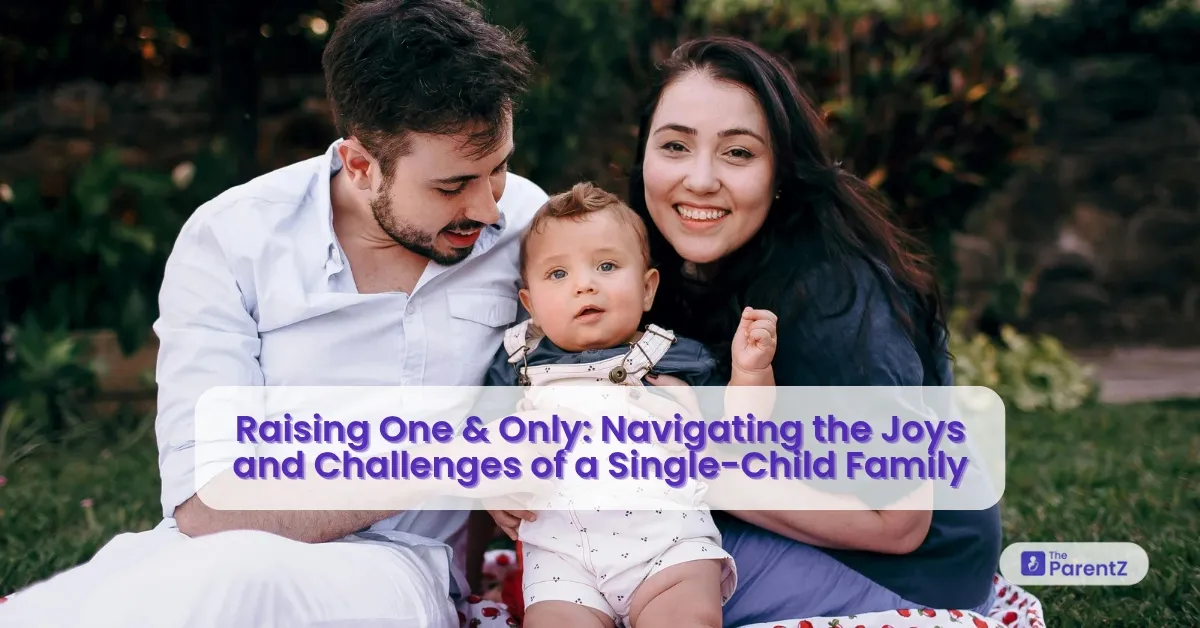"So when are you having another one?"
That question lands differently for every parent of an only child. For some, it triggers a sigh of frustration. For others, a pang of complicated emotions. And for many, a quiet confidence in the family they've already built.
The journey of raising a single child exists in a world where larger families often seem like the expected norm. Yet millions of families are choosing—or finding themselves with—a family of three. It's a path filled with its own distinct challenges and deep, fulfilling moments that deserve to be understood on their own terms.
The decision to have one child might come from career considerations, financial realities, health limitations, environmental concerns, or simply the feeling that your family feels complete just as it is. Whatever brought you here, this journey offers its own kind of richness that deserves celebration rather than constant questioning.
The Truth About Only Children
Let's address the common stereotypes first. Only children are often labeled as spoiled, selfish, lonely, or socially awkward. However, research consistently shows these stereotypes don't hold up. Studies indicate that only children typically develop strong social skills, excel academically, and show high levels of empathy and confidence.
That said, this isn't about defending the choice to have one child. It's about understanding the real, everyday experiences that come with raising a single child, both the wonderful aspects and the more challenging ones.
The Benefits of the Single-Child Family
Deep, Focused Relationships
With one child, families often develop relationships with remarkable depth. Parents and children often engage in meaningful conversations, from playground stories to deeper discussions about life's big questions. There's time and space for these interactions that might be harder to find in busier households.
Financial Flexibility
The practical reality is that raising children involves significant expense. With one child, families often have more financial breathing room. This might mean being able to say yes to music lessons, special camps, or family trips without stretching the budget to breaking point. It's not about spoiling but having more options within the same financial constraints.
Career Balance
Returning to work can be more manageable with one child. Childcare costs for a single child are more affordable, and coordinating schedules tends to be less complex than with multiple children. This can allow parents to maintain careers they value while balancing family responsibilities.
Witnessing Development
There's something special about being able to fully observe a child's development. Many parents of only children report treasuring moments of growth and achievement - like watching their child finally understand a difficult concept or master a new skill - moments they might have missed if attention was divided among siblings.
The Real Challenges
Being Their Everything
Parents of only children often feel the pressure of being their child's primary playmate, confidante, entertainment director, and problem solver. Without siblings to take some of that pressure off, parents can find themselves exhausted from the intensity of one-on-one attention by the end of the day.
The Questions and Doubts
It's normal for parents to occasionally wonder if their child might miss out on sibling relationships. Questions like "Will they have support when we're older?" or "Are they missing crucial social experiences?" can surface during quiet moments of reflection.
Managing Intense Focus
When there's just one child in the family, it's easy for the household to revolve entirely around them. Parents might realize they've spent days discussing nothing but their child. Finding identity beyond parenthood is important for all parents, but it can be particularly challenging, especially with the intense focus that sometimes develops in single-child families.
Intentional Socialization
Without built-in playmates at home, parents of only children need to be proactive about creating social opportunities. Playdates, activities, and sports teams become not just extras but essential components of helping children develop relationship skills. This means more scheduling, more driving, and more effort than if children had siblings to practice these skills with at home.
Finding Your Path
Different approaches work for different families, but here are some strategies that many parents of only children find helpful:
- Build a community: Developing close relationships with other families can provide children with "honorary cousins" who become almost like siblings.
- Value alone time: Teaching children to be comfortable with solitude can be one of the greatest gifts. Many only children develop remarkable creativity and independence through this experience.
- Set clear boundaries: Having one child doesn't mean they need to be the center of the universe. Clear boundaries about adult time and space help children understand they're an important part of the family, but not its sole focus.
- Connect with similar families: Finding other parents of only children can provide a support network of people who understand the specific joys and challenges.
- Trust family instincts: Every family knows their own situation best. While doubts might occasionally arise, most parents can look at their family unit and recognize when they've made the right choice for their circumstances.
Conclusion
The reality is that there's no perfect family size. One child, multiple children, or something in between - each family structure brings its own set of joys and challenges. What matters most isn't the number of children but the love, attention, and guidance provided to whoever makes up the family.
For parents of "ones and onlys," your family is complete exactly as it is.






Be the first one to comment on this story.